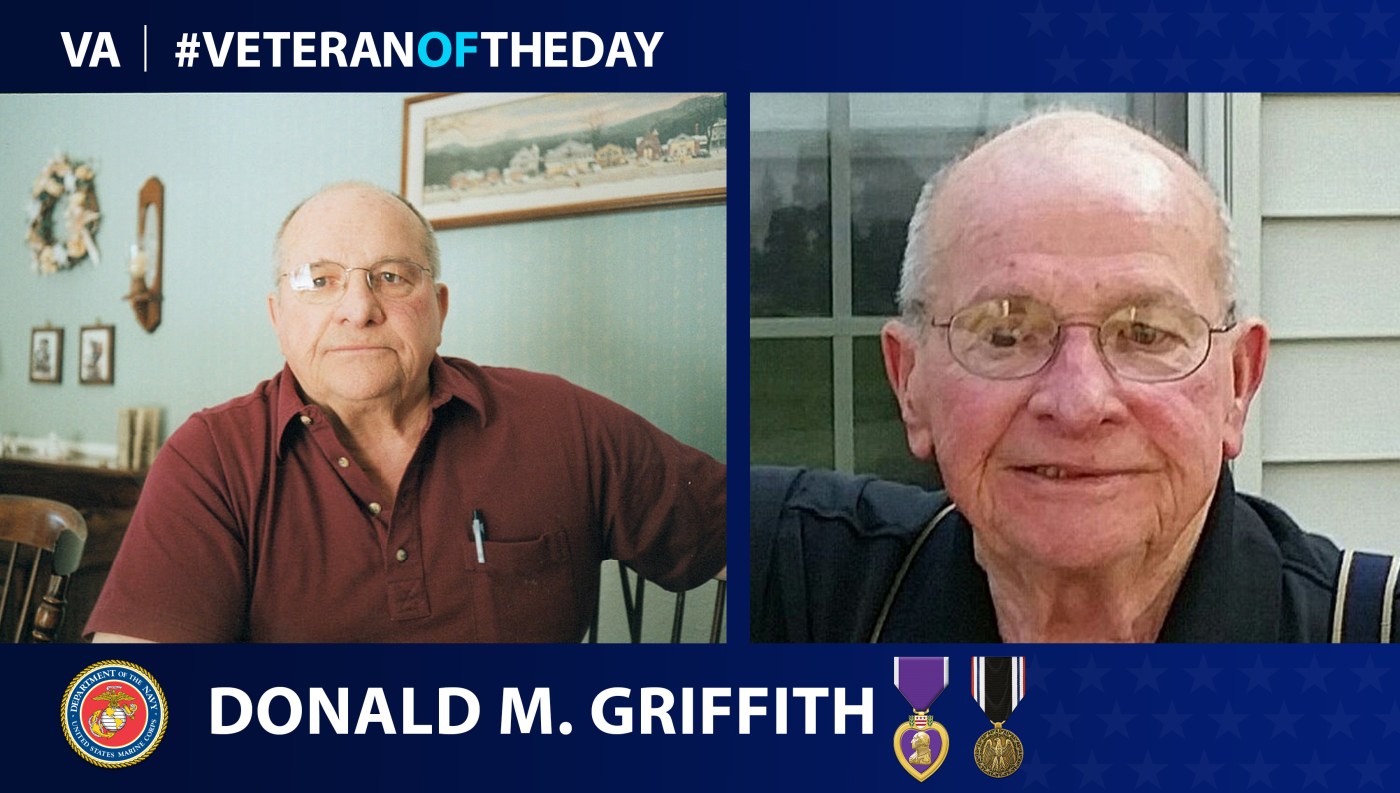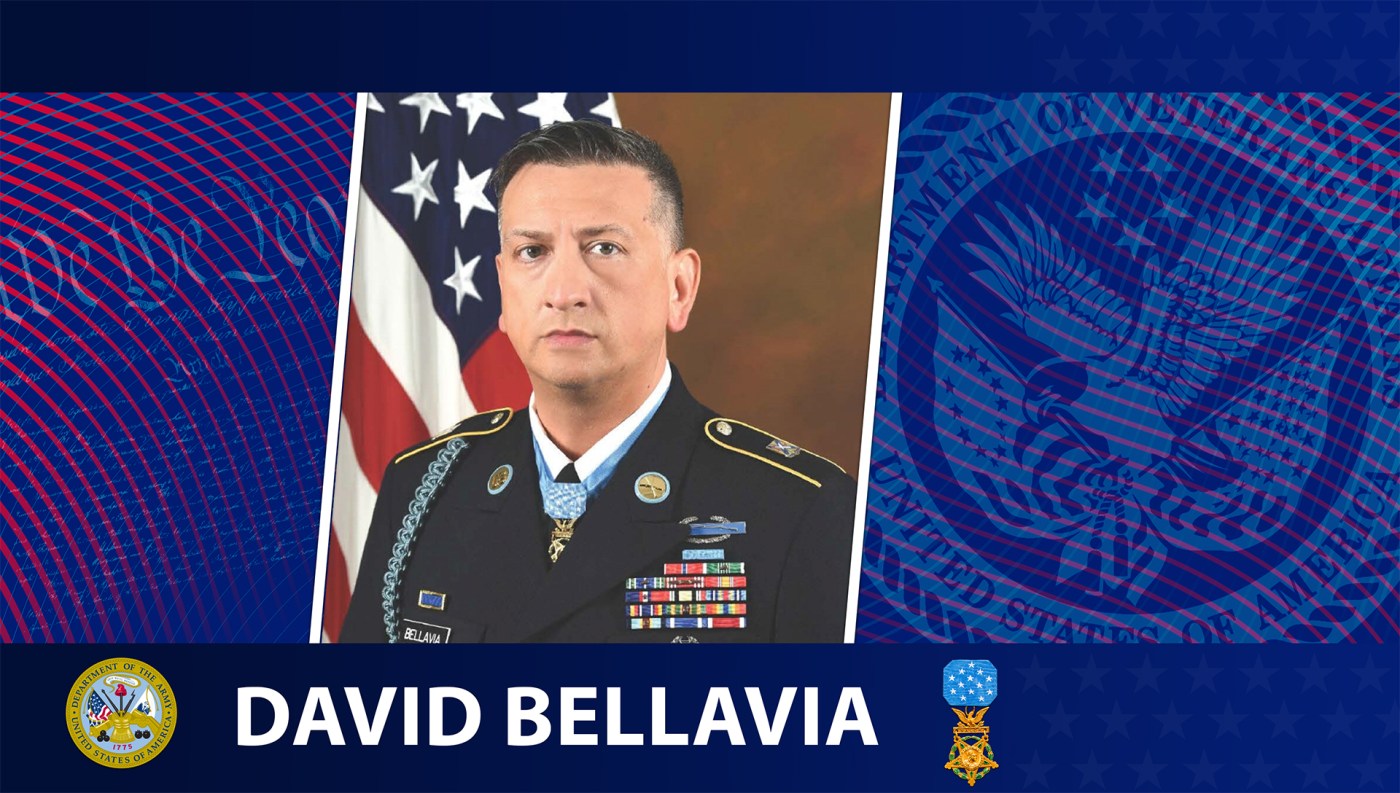
Today’s #VeteranOfTheDay is Marine Corps Veteran Donald M. Griffith, who fought at the Battle of Chosin Reservoir and was a POW during the Korean War.
Donald Griffith grew up in East Toledo, Ohio. While still in high school, he enlisted in the Marine Corps. After completing basic training, Griffith transferred to Norfolk, Virginia, to serve as a sentry. Shortly afterward, he went to California and boarded a ship for China. However, he stayed in Hawaii and served as a guard for World War II Japanese prisoners. He later served a military policeman and promoted to sergeant.
In 1947, Griffith went back to Norfolk to work at the Navy base as a guard at the Navy prison. After his four-year term was up, he reenlisted in the Marine Corps and went to the Naval Shipyard in Philadelphia, Pennsylvania. While there, Griffith worked in the storage depot as a quartermaster. When the Korean War started, Griffith transferred to a Marine Corps guard company and traveled by ship to the Pacific in the summer of 1950. After temporarily landing in Japan due to typhoon activity, Griffith landed in Pusan, South Korea, and assisted with rifle range training.
In the fall of 1950, Griffith’s ship landed at Incheon near Seoul as part of the forces to capture Kimpo Air Base and eventually march on Seoul. After securing the air base and capital, Griffith’s platoon returned to their ship to reload ammunition before sailing for Wonsan in North Korea. Griffith’s battalion stayed briefly in Seoul before going to the Chosin Reservoir to combat the Chinese People’s Army forces there. In mid-November, the battalion marched from the eastern side of the Chosin Reservoir over to the western side as the Chinese forces encircled the UN command forces. Eventually, the lack of supplies and air support forced Griffith’s battalion to retreat.
On Dec. 1, 1950, the Chinese captured Griffith and two other soldiers during the battalion’s retreat. Despite wounds to his face, Griffith and the other soldiers marched without food or water for two days and three nights. When they arrived at a POW camp, guards separated Griffith from his comrades due to his wounds. He attempted to escape but guards recaptured, tortured and held him in a pigpen for 33 days. The Chinese transferred him to another POW camp in April 1951. He remained in captivity until the war’s ceasefire in July 1953.
After the ceasefire, Griffith and the other POWs traveled by train to Panmunjon for formal release Aug. 31. When he returned to the United States, Griffith went to the Philadelphia Naval Hospital to have facial surgery. He honorably discharged from the Marine Corps in 1954 as a staff sergeant. For his wounds, Griffith received a Purple Heart.
After leaving the service, he returned to Ohio and worked for Nationwide Insurance. After retiring from Nationwide, Griffith worked as a zoning inspector for the city of Northwood. In the 1980s, Griffith was one of the first POWs to receive the Prisoner of War Medal. President Ronald Reagan presented him the medal at a ceremony at the White House.
In his retirement, Griffith was active in the Veterans of Foreign Wars, the American Legion, and the Korean War Veterans groups. He also was a member of the Chosin Few, the group formed in the early 1980s of survivors of the Chosin Reservoir battle.
Griffith passed away in 2016.
We honor his service.
Nominate a Veteran for #VeteranOfTheDay
Do you want to light up the face of a special Veteran? Have you been wondering how to tell your Veteran they are special to you? VA’s #VeteranOfTheDay social media feature is an opportunity to highlight your Veteran and his/her service.
It’s easy to nominate a Veteran. Visit our blog post about nominating to learn how to create the best submission.
Veterans History Project
This #VeteranOfTheDay profile was created with interviews submitted to the Veterans History Project. The project collects, preserves, and makes accessible the personal accounts of American war Veterans so that future generations may hear directly from Veterans and better understand the realities of war. Find out more at http://www.loc.gov/vets/.
Contributors
Additional writer: Sarah Concepcion
Editor:
Fact checker: Richard Aguilera
Graphic artist:
Topics in this story
More Stories
This week’s Honoring Veterans Spotlight honors the service of Army Veteran David Bellavia, who received a Medal of Honor from the Iraq War’s deadliest operation, the Second Battle of Fallujah.
This week’s Honoring Veterans Spotlight honors the service of Army Veteran Scotty Hasting, who served in Afghanistan.
This week’s Honoring Veterans Spotlight honors the service of Army Veteran Roy Sheldon, who served in 97th General Hospital in Frankfurt, Germany.







We honor the service of Donald Griffith.